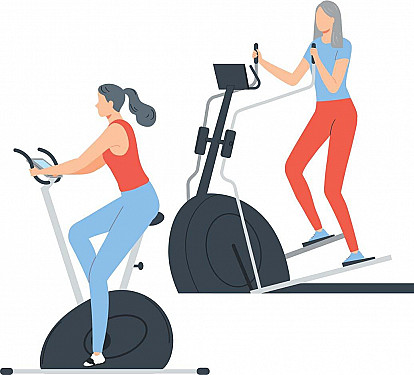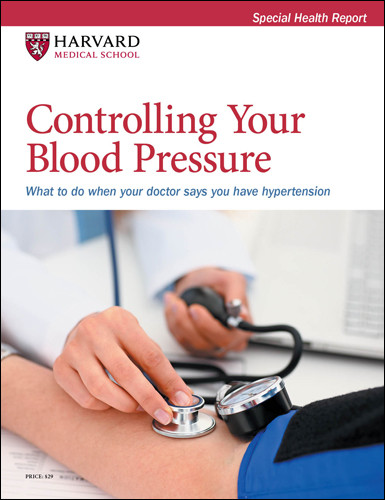How does exercise affect blood pressure?
Ask the doctor

Q. Does exercise raise or lower your blood pressure? And what's the best type of exercise for blood pressure?
A. While you are exercising, your blood pressure (along with your pulse) goes up, to supply the additional blood flow that your exercising muscles need. Otherwise, regular exercise lowers your blood pressure throughout the day.
Besides lowering your blood pressure, regular exercise reduces your risk of heart disease, many kinds of cancer (including breast and colon cancer), diabetes, obesity, kidney failure, osteoporosis, and gallstones. And, by the way, it also protects your ability to think, improves your mood, and lengthens your life. No pill yet invented can begin to give you all those health benefits. And pills cost money, whereas you can exercise for free.
Do all kinds of exercise lower your blood pressure? In July 2023, the British Journal of Sports Medicine published an analysis of nearly 300 randomized trials involving over 15,000 people. Each trial assigned people either to a particular form of regular exercise or to no exercise for a period of at least two weeks.
Several types of exercise were evaluated: aerobic exercise training (the kind most often studied and recommended), high-intensity interval training, dynamic resistance training, isometric exercise training, and combined training (aerobic plus one of the other types of exercise).
- High-intensity interval training is a relatively new type of exercise that is popular because it takes less time and may give benefits comparable to more vigorous aerobic exercise. It involves repeated cycles of brief (one minute) high-intensity exercise followed by brief low-intensity exercise.
- Dynamic resistance exercises are a kind of strength exercise that involves movement of muscles and joints, such as push-ups, shallow squats, or dead lifts.
- Isometric exercises are strength exercises in which specific muscle groups are tightened without movement of muscles and joints, such as the wall sit or extended plank.
You can learn more about these exercises in the Harvard Special Health Report Starting to Exercise (/ste).
The good news is that each of these types of exercise was found to be clearly effective in lowering resting blood pressure. Since none of the studies compared one type of exercise to another — but instead compared one particular type of exercise to no exercise — we can't be sure which type of exercise is best at lowering blood pressure. Particularly if you are over age 50 and have not been exercising much, it's best to check with your doctor before beginning a regular exercise program, since some types of exercise may not be right for you. But choosing one of them is the best thing you can do for your health.
Image: © Edwin Tan/Getty Images
About the Author

Anthony L. Komaroff, MD, Editor in Chief, Harvard Health Letter; Editorial Advisory Board Member, Harvard Health Publishing
Disclaimer:
As a service to our readers, Harvard Health Publishing provides access to our library of archived content. Please note the date of last review or update on all articles.
No content on this site, regardless of date, should ever be used as a substitute for direct medical advice from your doctor or other qualified clinician.
















